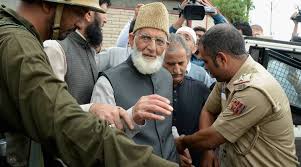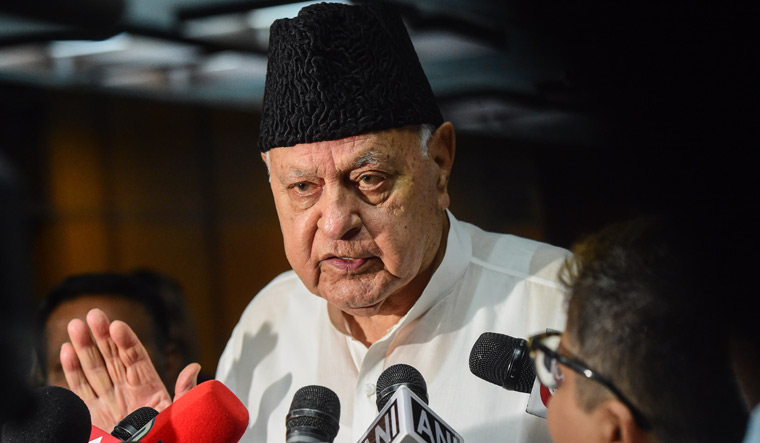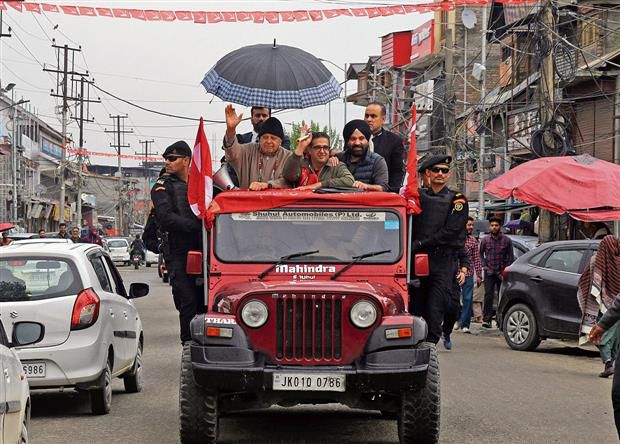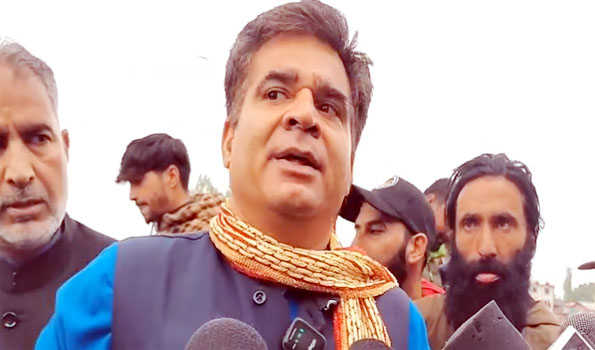No flip-flop in the approach towards Pak.: Govt. Source
If violence in the Kashmir Valley ceases, the Modi government is open to the idea of a dialogue with separatist Hurriyat leaders, a top government source said on Thursday.
While describing the current unrest in Kashmir as 100 per cent sponsored by Pakistan, the source admitted that the movement was entirely leaderless. “Even the separatist leaders are at a crossroads.”
Critical of the role played by electronic and social media, the source said that by stressing “excessively humanistic grounds” the state was being “weakened.”
The first “experiment” in using violence though stone-pelting happened in 2010 and was being repeated. “What is more apparent this time is the excessively religious dimension,” the source said, adding that the effort was to set up a theocratic State.
The idea behind the stone-pelting was to compel security forces to respond and then say that atrocities were happening in Kashmir. However, the government was making a “distinction between the people and separatists” and would help with the medical treatment of injured civilians.
In order to reduce the use of pellets that had led to civilian deaths and loss of eyesight, the government had begun sending 1,000 pava or chilly shells every day since September 5. These would be soon put to use.
On engagement with Pakistan, the source claimed there was no “flip-flop” in the approach to Islamabad. In 2014 itself, Prime Minister Narendra Modi had conveyed to his Pakistani counterpart Nawaz Sharif that there would be three principles guiding India’s engagement with Pakistan — talk about all issues in a dialogue process, no third-party mediation and that terror and dialogue would not go together.
Leaderships in both countries had established cordial relations and it was this relationship that led to the impromptu visit of Mr. Modi to Lahore and the post-Pathankot anti-terror cooperation.
The source denied that India had been naive in believing the sincerity of Mr. Sharif given that the real power to take decisions on India policy lay with Army Chief Raheel Sharif.
Also, India would engage only with the head of government and not the Pakistan Army Chief. There was, however, a total turnaround in Mr. Sharif’s approach after he returned to Pakistan after his bypass surgery. Domestic pressures and the leak of the Panama Papers could have been behind this.
“From India’s perspective, it appears that [dialogue in] Lahore is jinxed,” the source said, pointing to the failed effort by then Prime Minister A.B. Vajpayee in 1999.
Mr. Modi’s decision to raise the issue of rights’ violations in Balochistan was a considered one and followed discussions within the government, the source claimed.






